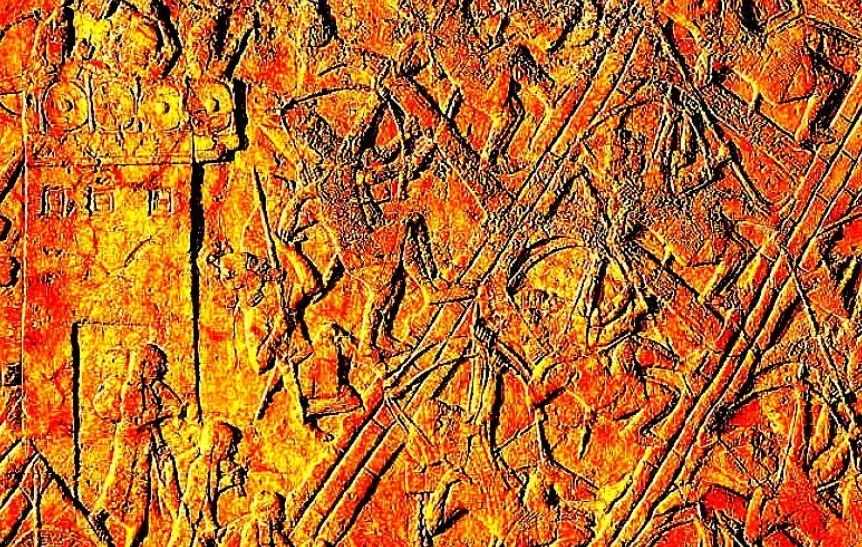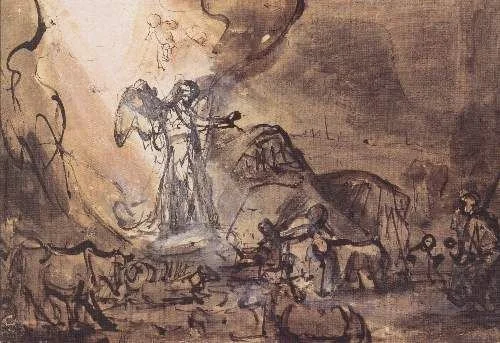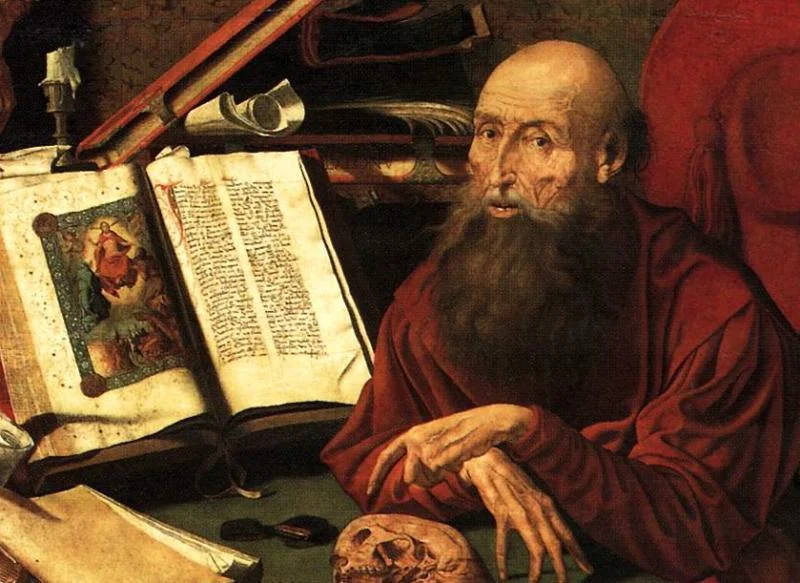Hamas forces kidnapped 253 people from Israel on October 7th, including children, women, and the elderly. From those, 112 have been returned alive to Israel, with the vast majority of them being exchanged at the end of November 2023. Notably, 80 Israeli captives were exchanged then for 240 Palestinian prisoners at a three to one ratio. This Israeli practice of not leaving a fellow citizen behind is a long-respected Jewish tradition.
Israel is at War
On October 7th, 2023, less than two weeks ago, the terrorist organization Hamas surprised Israel with a sophisticated pre-dawn attack, by launching at least 3,000 rockets before some 2,500 Palestinian militants breached the Gaza–Israel barrier and massacred at least 1,400 people from all walks of life—Israeli soldiers, foreign workers, old men and women, young people at a music festival, families, as well as children and babies.
Good News is a Verb
One of the most well-known parts of Luke’s description of Jesus’ birth occurs when an angel appears to shepherds who are guarding their flocks at night and says, “Do not be afraid. I bring you good news that will cause great joy for all the people. “
Here in the Greek of Luke 2:10, it literally says, “I evangelize to you great joy for all the people.” In fact, our word for “evangelical” Christian comes straight from this Greek verb which means to “share good news.”
The Inheritance of a Good Father
In Luke 12:13-34, Jesus is confronted by a man who wants his brother to share their father’s inheritance with him. Jesus warns the brother, “Beware of greed,” and then distills his dispute into a proverb: “Life does not consist in an abundance of possessions.” A father’s inheritance is intended to bless his children. Possessions and assets passed down to the next generation, if invested wisely, can build a foundation for future financial success. While the brother is worried about his inheritance, Jesus is concerned about his heart.
God’s Word is not through with us
In Deuteronomy 34, Moses dies and is buried by God outside the land of Canaan. But God allowed one final mercy to Moses, when He let Moses climb Mt. Nebo and look over upon the land. Moses could see the land, but he would not touch it. Moses’ life work had been bringing his Hebrew people to this point in history, but he would not get to experience their joy of entering the Land.
Rise of the Antichrists
The Antichrist is like the Christ—well-known, but little understood. Throughout Western culture, antichrist is the assumed, ultimate epitome of evil, much in the same vein as Satan. For many 21st century Evangelicals, he is equated with Revelation’s Beast, a feared future destroyer whose march is only stopped by the heralded return of Christ. While Christians have longed to see Jesus’ face again, the identity of the Antichrist is an unknown variable in our end days expectations.
“O Little Town of Nazareth”
In the Gospel of Matthew, the events surrounding Jesus’ life are interpreted as fulfilling Hebrew Scripture’s messianic hopes. Twelve times in Matthew it says that episodes in Jesus’ life “fulfilled” what was spoken by a prophet. Every time an event is highlighted, a recognizable Old Testament quotation is directly given. Every time, that is, except one time.
This Generation is an Evil Generation
One time as Jesus was speaking to a crowd, he called his listeners an “evil generation.” Curiously, the only evidence that Jesus cited for that generation’s guilt was their desire for “signs.” At first take, this is a paradox, because throughout Scripture, signs and wonders are an affirmation of God’s presence in the world and of His work among His people. To understand Jesus’ negativity toward “signs”, we must recall the context of that story.
Examine the Flowers of the Field
A Parable of Dirt
Every Friday night, many Jewish families gather and welcome the Shabbat, or Sabbath. At this weekly traditional gathering, God is thanked for his provision, specifically with blessings related to two elements—the wine and the bread. This is, because the entire meal in biblical and Jewish tradition can be summed up by those two things—wine symbolizes drink and bread represents food.
Are We “People of the Book”?
It can be argued that the spread of Christianity was empowered by its universal message, making it highly compatible in many cultures and languages. Yet, that strength can also be a weakness, when the shifting winds of culture and language blow back on the original biblical meaning and context. To safeguard the gospel message, a robust relationship with Hebrew and Greek are essential for the future of the Evangelical church.
The Lion Has Roared, Who Will Not Fear?
One of the most well-known parts of Luke’s description of Jesus’ birth occurs when an angel appears to shepherds who are guarding their flocks at night and says, “Do not be afraid. I bring you good news that will cause great joy for all the people. “
Here in the Greek of Luke 2:10, it literally says, “I evangelize to you great joy for all the people.” In fact, our word for “evangelical” Christian comes straight from this Greek verb which means to “share good news.”
Panting for God in the Age of Desalination
Today, Israel is in the midst of a five-year drought. As we are ending this year’s short window of the rainy season, consistently below average rainfalls threaten to dry up the legendary “Land of Milk and Honey.” Historically, drought births famine, as lack of rain destroys agriculture and instigates starvation.
"I Desire Relationship Not Sacrifice"
This past week we ended the holiday of Hanukkah or “Dedication” that commemorates when Judah Maccabee restored the purity of Jerusalem’s temple after having been desecrated by Gentiles with their pagan sacrifices. Among other things, Judah’s forces tore down the altar that had borne the blood of pigs, and rebuilt a new one in its place. Having completed the remodeling, Judah celebrated this rededication for eight days at the end of 164 BC. At the heart of Hanukkah is restoration of pure sacrifice.
October 31, 1917: The Beginnings of a Jewish Homeland in Beersheba and Balfour
Today, Israelis and descendants of the Anzacs (Australian and New Zealand Army Corps from the British Empire’s army during World War I), celebrated the 100th anniversary of Britain’s crucial victory at Beersheba which began the end of Ottoman rule in the Holy Land and helped birth the Balfour Declaration. Israeli Prime Minister Benyamin Netanyahu, Australian Prime Minister Malcolm Turnbull, and New Zealand Governor-General Patsy Reddy were present at today’s ceremony.
An Ancient Yom Kippur Mashup-->Jesus Mixing the Prophet Isaiah
There is only one story in the gospels where Jesus reads from the Scripture when he was in his hometown synagogue. At some point after the destruction of the First Temple in 587 B.C., Jews first began meeting in synagogues every Sabbath—or Shabbat—and reading from the five books of Moses. Those first books of Hebrew Scripture—Genesis, Exodus, Leviticus, Numbers, and Deuteronomy—also known as the Torah, formed the core scripture readings in the synagogue every Shabbat.
When God's Home Was Destroyed
The writer of Lamentations sits astonished. The unbelievable has happened. It is the 6th century B.C. and the holy city of Jerusalem is no more, and its temple—the House of God—is razed. The city of the Judean kings is plundered and left bare. David’s descendants have been murdered, raped, and enslaved. Bodies of old and young lie in the road; like an apocalyptic nightmare, the famished survivors wander the ravaged streets like zombies, even eating their children.
"Jerusalem, Jerusalem..."
ISIS ending in Iraq, weakening in Syria, strengthening in Egypt. Turkey-Erratic
Purim, Puppet Masters, and Politics
Purim is in the air here in Israel, with its costumes and confections, and our attention turns again to reading the Esther scroll. There is an inherent irony in these celebrations—on the one hand, you have a carnival like celebration, which in many ways seems suited to this wild and crazy story, on the other hand you're dealing with serious issues like genocide.




















